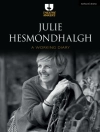The first scholarly collection in English or German to fully address the treatment of gender and sexuality in the productions of DEFA across genres and in social, political, and cultural context.
The cinema of the German Democratic Republic, that is, the cinema of its state-run studio DEFA, portrayed gender and sexuality in complex and contradictory ways. In doing so, it reflected the contradictions in GDR society in respect to such questions. This is the first scholarly collection in English or German to fully address the treatment of gender and sexuality in the productions of DEFA across genres (from shorts and feature films to educational videos, television productions, and documentaries) and in light of social, political, and cultural contexts. It is also unique in its investigation of previously unresearched subjects, including films and directors that have received little scholarly attention and nonconformist representations of gender and sexual embodiments, identifications, and practices. The volume presents the work of leading scholars on the GDR and allows students and scholars to examine East German film with respect to the acceptance, rejection, or nuanced negotiation of ideas of proper male and female behavior espoused by the country’s brand of socialism.
Contributors: Muriel Cormican, Jennifer L. Creech, Heidi Denzel de Tirado, Kyle Frackman, Sebastian Heiduschke, Sonja E. Klocke, John Lessard, Larson Powell, Victoria I. Rizo Lenshyn, Reinhild Steingröver, Faye Stewart, Evan Torner, Henning Wrage.
Kyle Frackman is Assistant Professor of Germanic Studies at the University of British Columbia. Faye Stewart is Associate Professor of German at Georgia State University.
Содержание
Introduction: Sex and Socialism in East German Cinema — Kyle Frackman and Faye Stewart
Hypnagogic Mothers: Gender, Amateur Film Labor, and the Transmissive Materiality of the Maternal Body — John Lessard
Powerless Heroines: Gender and Agency in DEFA Films of the 1960s and 1970s — Henning Wrage
Jutta Hoffmann and the Dialectics of Happiness: A Socialist Star in Close-Up — Victoria I. Rizo Lenshyn
Who Is the ‘Third’? Homosociality and Queer Desire in
Der Dritte — Faye Stewart
Volatile Intimacies and Queer Polyamory in GDR Film — Evan Torner
Interracial Romance, Taboo, and Desire in the Eastern Counter-Western
Blutsbrüder — Heidi Denzel de Tirado
The Desire to Be Desired? Solo Sunny as Socialist Woman’s Film — Larson Powell
Ambivalent Sexism: Gender, Space, Nation, and Renunciation in
Unser kurzes Leben — Muriel Cormican
Dealing with Cancer, Dealing with Love: Gender, Relationships, and the GDR Medical System in Lothar Warneke’s
Die Beunruhigung — Sonja Klocke
Reimagining Woman: The Early Shorts of Helke Misselwitz — Reinhild Steingröver
Shame and Love: East German Homosexuality Goes to the Movies — Kyle Frackman
Gendered Spectacle: The Liberated Gaze in the DEFA Film
Der Strass — Jennifer L. Creech and Sebastian Heiduschke
Об авторе
MURIEL CORMICAN is Professor of German at the University of West Georgia. She is the author of Women and Gender in the Works of Lou-Andreas Salomé (CH, 2009).












